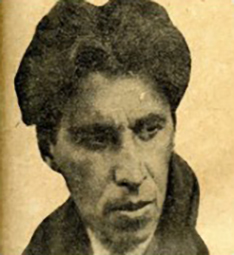페이지 정보
The Self-Seeker
|
작성자최고관리자 작성일23-07-25 조회567 |
|---|
본문
Ukrainian SSR | 1927 | Asia | 77min | DCP | B&W | Drama | Drama
Synopsis
'The Self-Seeker' is a story of a Ukrainian philistine, Apollo Shmyguyev, who tries to benefit from the numerous shifts in power and political chaos in Kyiv during the Soviet Civil War (1917–1922). Ambitious, chameleonic, and inconstant, Apollo quickly rises to become head of the local commissariat, but his relentless greed repeatedly puts his life in danger. This comedic road movie humorously follows the protagonist as he travels—sometimes on a camel—between the opposing camps of Bolsheviks, royalists, and anarchists. However, his selfishness and lust for gain remain his sole motivations. The film was highly uncharacteristic of its time: it mocks both the bureaucratic and fanatical nature of the Bolsheviks and the kleptocratic vanity of the Whites. As one of the few early Ukrainian comedies, its satirical portrayal of Bolshevik revolutionary propaganda led to an immediate distribution ban.
Director
-

- Mykola Shpykovsky
- Born in 1897 in Kyiv, Mykola Shpykovsky began his cinematic journey as a film critic, contributing to film magazines such as Kino and Sovetsky Ekran. In 1927, he was invited to join the Odessa Film Studio, and three years later, he released his debut and most talked-about film, The Self-Seeker. The film was based on a novel by renowned 1920s Ukrainian writer Vadym Okhrimenko and portrays the story of Apollo Shmyguyev, a philistine who prioritizes personal gain amid the political chaos and frequent changes in regime during the Russian Civil War in Kyiv. The Communist government at the time disliked the film, mocking the protagonist as a "camel" and criticizing the way the civil war was depicted as purely destructive, with the Red Army shown as foolish. Despite the controversy, Shpykovsky continued his work until 1932, producing films such as Bread, Hegemony, and Avant-Garde before relocating to Moscow following the collapse of Ukraine’s national film studio, VUFKU.


















































